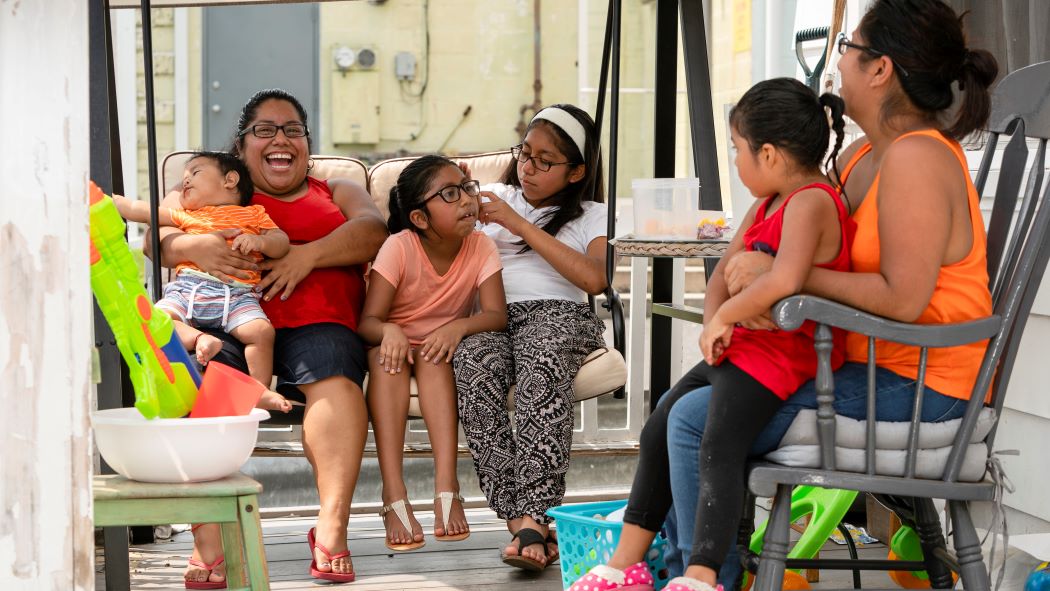
 By Dr. Luis Torres, medical director at Evernorth (Cigna Corporation's health services business), and Cigna's 2022 CEO Action for Racial Equity Fellow
By Dr. Luis Torres, medical director at Evernorth (Cigna Corporation's health services business), and Cigna's 2022 CEO Action for Racial Equity Fellow
Hispanics are a growing segment of the United States population, representing 19% of people living in the U.S. In spite of this growth, health disparities remain an issue, driven predominantly by factors such as lack of access to high-quality care and preventive care, as well as language and cultural barriers.
The COVID-19 pandemic has exposed longstanding systemic health and social inequities facing the Hispanic population and other minority communities. These inequities have led to mistrust in the health care system and impacted the ability to access social and economic benefits such as housing, education, economic stability, and employment. Trust, cultural relevance, and accessibility are fundamental barriers that must be overcome to engage and better serve Hispanics.
Hispanic Health Care Consumer Mindset
Approximately 38% of Hispanics in the U.S. are not fluent in English. Doctors and the health care experience overall can be overwhelming for any culture, particularly when patients are facing language barriers, cultural differences, and a misunderstanding of insurance benefits. In fact, when a provider and a patient are unable to communicate effectively, it can lead to decreased health outcomes, decreased patient and provider satisfaction, and increased costs.
A 2020 study found that the majority of Hispanics (69%) find health care in the United States overwhelming and 46% believe that the health care system doesn’t devote enough resources to the Hispanic community.
When it comes to health-related information and guidance, Hispanics tend to rely heavily on word of mouth, placing a high value on the opinion of friends, family, and the religious community. According to a May 2022 report from McKinsey, White survey respondents were most likely to call the doctor if they aren’t feeling well, while Hispanics indicated they were more likely to research online and speak to friends and family members instead.
Social Determinants of Health and Health Disparities Among Hispanics
Social Determinants of Health (SDOH) that impact Hispanics include poverty, inadequate access to health care, educational inequalities, language barriers, individual and environmental factors as well as bias in the medical profession. Social Determinants of Health are largely responsible for people’s health, well-being and quality of life. SDOH are also connected to health disparities and health inequities. For example, people who do not have access to safe and reliable transportation may also have an issue with access to health care. Concerns with access to health care consequently lead to issues with receiving timely health screenings and appropriately managing health conditions.
Consider the following statistics:
- The Hispanic American community has been disproportionally affected by COVID-19, with almost three times as many cases among Hispanics than among Whites.
- One in two Hispanics will develop diabetes over their lifetime, and Hispanic Americans are 1.3 times more likely to have kidney failure compared with non-Hispanic Americans.
- Hispanics are less likely to receive treatment for depression, anxiety, and other behavioral issues than Whites.
These are just some of the health disparities experienced by Hispanics, and many of them are accelerated by a lack of access to quality care.
Cigna Programs and Solutions that Address Hispanic Health Care Access
Cigna is taking steps to reduce the barriers of care for the Hispanic community. For example, to help our Spanish-speaking customers access behavioral health care, Cigna has expanded the mental health support offered through Evernorth Behavioral Health to include Ginger’s coaching, therapy, and psychiatry services in Spanish as an in-network benefit. Cigna is the first health plan to offer Spanish services through Ginger, Headspace Health’s on-demand mental health platform.
Cigna’s language assistance services are another way we are helping Spanish-speaking customers access care in ways that are simple, predictable, and affordable. Services include:
- Translation of benefits and coverage-related documents in a customer’s preferred written language or format, including options for deaf, hard of hearing, blind or low vision customers, as well as customers with speech and language disorders.
- Cigna certified bilingual staff and access to professional interpreters.
- Real-time video remote interpretation (VRI) using a smartphone, tablet, or laptop for virtual care when in-person services are not an option.
- Cigna.com en español is a user-friendly Spanish-language website that aims to reduce health disparities, improve customer experience, and increase health literacy among U.S. Hispanics through culturally relevant health and wellness information. Cigna also has Spanish-language social media pages on Facebook and Twitter.
Additionally, Cigna's Cultural Competency and Health Equity website includes numerous resources for providers and their staff, such as customer-focused cultural competency trainings, white papers, and toolkits promoting patient-centered care and culturally appropriate communication techniques for diverse populations.

Cigna is Committed to Health Equity
For more than a decade, Cigna has promoted the identification of health disparities and influenced the development of solutions that result in more equitable health among our customers, our workforce, and in the community.